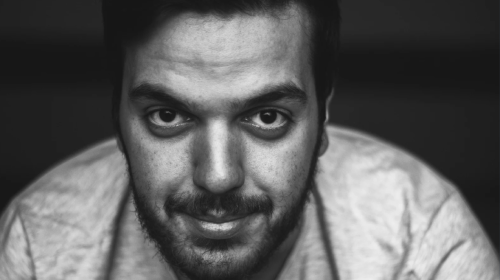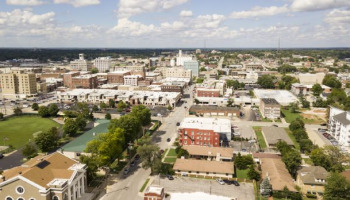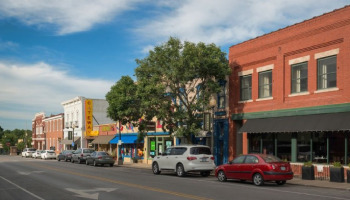Expert Insights
Over the last five years there has been a 500% increase in opioid related deaths in the Black community of St. Louis, Missouri. Researchers and treatment specialists state a new approach is needed to halt this unfortunate statistic in its tracks. The real question here is, “Are we willing to own the fact that inequality is the real issue creating this problem?” If you look at the lack of resources reaching poverty stricken areas, you have no choice but to see where the origin of the problem begins and who is responsible for it.
~ Lesley Wirth
How Much Does Drug Rehab Cost in Missouri?
Missouri is ranked 29th nationwide in terms of addiction treatment affordability, with an average cost of drug and alcohol rehab of $56,782 (without insurance).
- Medical detox is the most expensive, with an average cost of $139,988
- Long-term inpatient drug rehab in Missouri costs an average of $50,107
- Outpatient addiction treatment in Missouri costs an average of $8,326
- Outpatient methadone treatment is the most affordable, with an average cost of $7,397
The cost of care can range from very expensive care at a luxury treatment center to low-cost care at facilities that aim to serve people of all income levels. Your out-of-pocket expenses will depend on factors including:
Inpatient vs. outpatient rehab
Where the facility is located
Insurance plans accepted
Amenities and features (luxury vs. standard)
Length of stay
How to Find Free Drug Rehab Centers in Missouri
As of 2024, there were over 290 drug rehab facilities across the state of Missouri. These facilities accept several payment methods. Of those treatment facilities, the following numbers reflect how many offer free or low-cost addiction treatment services:
There are several ways to cover the cost of your addiction treatment in Kansas. The below options can help make your care more affordable.
Major Private Insurance Carriers in Missouri
- Aetna
- Allied National
- Ambetter Health
- Beacon Health Options
- Blue Cross /Blue Shield
- Cigna
- Cox Health Plans
- Farmers Insurance
- Humana
- Medica
- Missouri Farm Bureau
- New Directions Behavioral Health
- Oscar Insurance
- State Farm
- United Healthcare
Medicaid
Federally funded Medicaid insurance in Missouri is administered by the Missouri HealthNet
Division, a part of the Missouri Department of Social Services.
Medicaid programs include substance abuse treatment that may provide services including detox, medication-assisted treatment, crisis care, inpatient/residential treatment, outpatient addiction treatment (both intensive outpatient and regular outpatient services), 12-step and other faith-based programs, gender-specific programs, LGBTQ+ programs, and specialized addiction treatment programs for women who are pregnant or who have young children.
Services vary by facility, and all options may not be available at a particular facility.You should check with your insurance provider to find out which facilities and programs would be available to you through your plan.
Medicare and Medicare Advantage
Medicare and Medicare Advantage insurance plans in Missouri cover mental health and will typically cover substance abuse treatment for those who are diagnosed with a substance abuse disorder. Services vary by plan, but they often include detox, medication assisted treatment, inpatient or residential care, outpatient treatment (partial hospitalization programs, or PHPs, and intensive outpatient programs, or IOPs), as well as regular outpatient treatment Individual, group, and family counseling.
Diagnostic psychiatric evaluations and psychological assessments, plus medication management are also often covered. It is important to check with your insurance provider, however, and ask about the details of your specific insurance plan’s addiction treatment coverage. Some policies limit the number of inpatient days they’ll pay for. Other fees, such as deductibles and copays, may apply as well.
Military Insurance
Insurances that are typically available to current military personnel and retired military veterans include TriCare insurance and benefits from the Department of Veterans Affairs. TriCare insurance offers addiction treatment coverage for military personnel who have been diagnosed with substance use disorder.
Services provided may include residential or inpatient care, opioid addiction treatment with detox and medication assisted treatment as necessary, outpatient treatment, including intensive outpatient programs, and partial hospitalization programs, as well as regular outpatient treatment. Policies vary, so the kinds of treatment services offered could differ, and some services won’t be available at all facilities. Also, insurance policies may place time limitations on certain services, such as inpatient care.
The Department of Veterans Affairs addiction and substance abuse treatment benefits available to military veterans in Missouri are offered through the VA Substance Use Disorder program. This program provides inpatient and residential treatment, as well as outpatient treatment, and opioid treatment services. But the services available do vary by state VA SUD facility locations. You can find a list of Missouri VA clinics that offer SUD programs on their website.
Tribal and Indigenous Peoples’ Programs
There are no federally recognized Native American tribes or federally funded Indian reservations in the state of Missouri. But the state does have a Native American population that is about 0.4% of the overall population. Substance abuse treatment for this population can be accessed at the Urban Indian Organization facility in Kansas, City Missouri that provides substance abuse counseling and emergency assistance services (food baskets, hygiene and household items, for example) for the American Indian population in that area.
There are 41 Urban Indian Organizations with 70 facilities throughout the United States. They provide access to health care and culturally appropriate services for American Indians and Alaska Native people who don’t live on or near a reservation. They administer health programs and activities that are in compliance with the Indian Health Care Improvement Act of 2010, that encourages support for Indian health services for Indian people who would otherwise not have access to culturally responsive treatment.
Other Low-Cost Options
Financial Assistance
To access assistance in financing your substance abuse rehab treatment, you could take out a loan from a bank, or borrow from a family member or friend. You could also solicit funding assistance via a social media platform, like GoFundMe.
This online platform helps people raise money for their projects and personal needs. Alternately, if you belong to a group that often faces discrimination– a racial minority group, or the LGBTQ+ community, for instance–check out organizations that support such groups. Sometimes these groups’ advocacy organizations have scholarships available that can help pay for substance abuse treatment for people who are members of their communities.
Sliding Scale Payments
Many rehab facilities offer reduced fee payment options. Sliding scale payment programs that are based on income help potential clients who otherwise wouldn’t be able to afford treatment at a facility. If your income falls below the federal poverty level, you could receive the maximum fee reduction available at a facility.
But drug rehab costs vary significantly; for instance, luxury facilities cost much more than state-funded facilities. So even receiving a discounted fee wouldn’t guarantee that a specific facility would be affordable for you.
Family Medical Leave Act (FMLA)
The Family Medical Leave Act of 1993 gives job security to employees who take leave from their workplace for mental health reasons, such as seeking substance abuse treatment.
With FMLA, an employee can take up to 12 weeks of unpaid leave within a 12-month period, without losing their job. During the leave time, an employer must continue maintaining the employee’s health insurance benefits.
Substance Abuse and Mental Health Services Administration (SAMHSA) Block Grants
Block grants are provided to every state by the Substance Abuse and Mental Health Services Administration. These grants can be used by local government and non-governmental organizations for funding programs including detox, crisis services, inpatient and residential substance abuse treatment, outpatient substance abuse treatment, and supportive social services. 10
In Missouri, the Department of Mental Health uses SAMHSA block grants to provide funding for substance abuse and mental health prevention programs, addiction treatment, and substance abuse aftercare services. Priority is given to pregnant women and people who are HIV positive. Ask any rehabs that you are considering whether they might have SAMHSA grants available to help pay for your treatment.
Free Addiction Treatment Resources in Missouri
If you are trying to find low-cost or free substance abuse or addiction rehabs in Missouri, you’ll be glad to know that there are many options available to you. You can find help paying for alcohol or drug treatment through Medicaid insurance and other sources of state funding, and from federal block grants.
There are also facilities that offer sliding scale, reduced-fee payment structures. And there are funding opportunities available from nonprofit organizations, including faith-based groups and groups that support underserved populations, such as LGBTQ+ groups, veteran’s and other military groups and organizations, and groups that represent indigenous or tribal populations.
In the sections below you’ll find suggestions for these funding opportunities. Remember, when considering free or low-cost addiction treatment options, you should look for facilities that provide evidence-based treatments in addition to affordability.
Missouri Crisis Hotlines
United Way 211
Funded by the United Way of Missouri and Illinois, this phone hotline connects Missouri callers with crisis care and other social services. Help for finding mental health and substance abuse treatment, as well as food assistance, transportation services, and housing referral services is available by dialing 211 on your phone.
National Substance Abuse Hotline
Part of the National Rehab Hotline organization that is available 24/7, the Missouri Addiction Hotline is free and anonymous. It provides crisis counseling and treatment resource referrals to people with mental health and substance abuse issues. Call 866-210-1303 to be connected to an addiction specialist who can help.
Missouri Justice Involved Initiatives
The State of Missouri provides treatment programs for justice-involved individuals who have behavioral health or substance abuse issues, to help them stabilize and avoid re-offending.
Drug courts with diversion programs, addiction treatment, employment assistance, housing referral services, and referrals for medication-assisted treatment are programs that are included in this initiative administered by the Missouri Department of Mental Health.
Missouri Behavioral Health Services Locator
This services locator program is administered by the Missouri Department of Mental Health. They provide information about community mental health centers, addiction treatment services, recovery support assistance, and help with gambling addiction. Costs for services is based on ability to pay. You can visit the website or call (573) 751-4942 or (800) 575-7480 for more information.
National Alliance on Mental Illness (NAMI) Missouri
NAMI Missouri is part of the national NAMI nonprofit organization. NAMI supports families, caregivers, and others who have been affected by mental illness–their own, or that of someone they care about. NAMI Missouri offers education, support, community outreach, and awareness education on mental health issues. They also help mentally ill people manage their symptoms and navigate the mental health system. To find a local Missouri NAMI meeting, go here.
Salvation Army – Kansas City, Missouri – Adult Rehabilitation Center
The Salvation Army Rehabilitation Center in Kansas City, Missouri provides six to 12 months of substance abuse rehab for males ages 21-65. The program provides housing, food, work opportunities, spiritual care, and counseling. Program participants take part in work therapy at the rehab center. They must also attend all activities and classes associated with the program.
Salvation Army Midtown Service and Treatment Center
The Salvation Army Midtown Service and Treatment Center is a new, outpatient treatment facility for substance abuse and addiction treatment. The center is open from 9:30 am till 6:00 pm, Monday through Friday. Intakes are available form 9:00am till 4:30 pm Monday through Friday. Walk-in appointments are also available Monday through Friday from 9:00 am till 4:30 pm.
Missouri Drug Use Statistics
According to statistics from 2021, 13.2% of adults in Missouri say they used drugs (excluding cannabis) for non-medical reasons.1 In addition, 18.5% of adults in Missouri reported excessive drinking in 2020, including past-month binge drinking or heavy drinking.2

For men, 14.2% reported drug use, and 22% said they drink to excess.

Rates for women are slightly lower: 12.2% used drugs, and 15.3% reported excessive drinking.

People who identified their races as “other” reported the highest rate of substance abuse at 41%.

Hispanic residents reported the highest rates of excessive drinking at 36%
Missouri residents with an annual income of $25,000 reported the highest use of drugs.
Residents earning $75,000 or more reported the highest rate of excessive drinking.
People who completed some college reported the highest rates of drug use at 19%.
College graduates reported the highest rates of excessive drinking, at 19% respectively.
Drug Laws in Missouri
Missouri Good Samaritan Law
The Missouri Good Samaritan overdose law protects people who help another person who is experiencing an overdose emergency. The law prevents arrest or prosecution for both the helper and the individual who is overdosing.
Missouri Unlawful Possession of Controlled Substances
It is unlawful in Missouritopossess or distribute controlled substances, including opiates, narcotics, hallucinogens, stimulant drugs, and marijuana. Also illegal is the possession of drug paraphernalia. Possession of an illegal substance is a felony punishable by up to seven years in prison. Distribution of drugs is a felony with a sentence up to 15 years.
Missouri Cannabis (Marijuana) Law: Possession
Possession of marijuana is illegal in Missouri. Possession of not more than ten grams of marijuana is a class D misdemeanor. It is punishable by a fine up to $500. But if the possession reflects a second or subsequent controlled substance offense, the class D misdemeanor is elevated to a Class A misdemeanor.
Possession of 10 grams to 35grams of marijuana is a class A misdemeanor. It is punishable by up to a year in prison and a fine up to $2,000.21,
Driving While Intoxicated (DWI) Law in Missouri: First Offense
For a first DWI in Missouri, if your blood alcohol level is 0.08-0.15, the offense is a class B misdemeanor. It is punishable by 48 hours to 5 days in jail, depending on the level of alcohol in your system. The maximum punishment for Class B misdemeanors is 6 months in jail and a $500 fine.
DUI Laws Missouri: Second and Subsequent Offenses
In Missouri, a second DWI offense results in a minimum of 10 days in jail. For more than two prior convictions, the minimum jail time is 30 days plus possible community service. For three or more convictions, the minimum jail time is 60 days. For four or more prior convictions, the minimum sentencing is two years jail time.
Resources
- Opioids Dashboard | Missouri Department of Health & Senior Services. (2020). Mo.gov.
- FindTreatment.gov. (n.d.). FindTreatment.gov.
- America’s Health Rankings. (2021). Non-Medical Drug Use – Past Year In Missouri.
- America’s Health Rankings. (2020). Excessive Drinking In Missouri.
- Missouri Department of Mental Health. (2022). Services and Resources.
- Missouri Department of Mental Health. (2022). Locating Treatment & Services.
- National Institute of Mental Health. (2022). Major Depression.
- American Psychiatric Association. (2021). What are Anxiety Disorders?
- Chapman J, Jamil RT, Fleisher C. (2022). Borderline Personality Disorder. StatPearls Publishing.
- Revisor of Missouri. (2016). 579.015. Possession or control of a controlled substance — penalty.
- Missouri Sentencing Advisory Commission. (2022). Missouri Sentencing Laws.
- Revisor of Missouri. (2017). 579.030. Distribution of controlled substance in a protected location — penalty.
- 13th Judicial Circuit of Missouri. (2022). Drug Court Overview.
- Missouri Department of Health. (2022). Good Samaritan Brochure.
- MO-HOPE Project. (2022). Get Naloxone.









